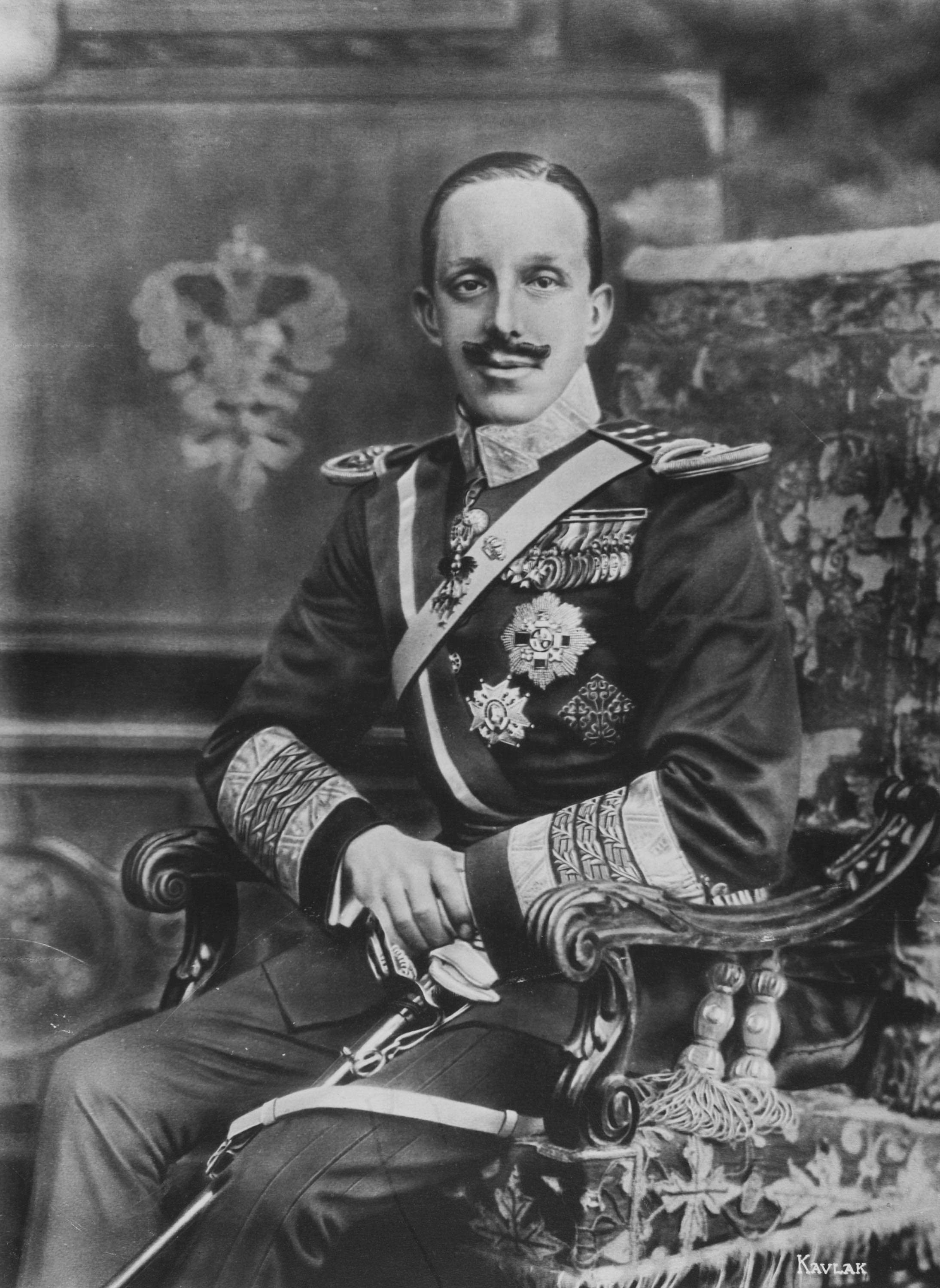Alfonso << al FAHN soh >> XIII (1886-1941) was king of Spain from 1902 to 1931. Throughout his reign, he faced a number of economic, political, and social challenges. After World War I (1914-1918), Spain’s economy suffered from widespread inflation (rising prices), poverty, and unemployment. In addition, the growing momentum of separatist movements centered in the Basque and Catalonia regions increasingly challenged the authority of Spain’s central government in Madrid. Spain’s disastrous colonial policy in Africa between 1909 and 1921 also served to weaken the constitutional monarchy. Alfonso, who had close ties to the military, was linked to a scandalous military defeat in Morocco at the Battle of Anwal in 1921. The defeat became a major national issue and sparked the downfall of the constitutional monarchy two years later.

Fearful that the social and political problems facing Spain would overwhelm the national government, General Primo de Rivera established a military dictatorship in 1923. Alfonso’s support of Primo’s antidemocratic policies between 1923 and 1930 called into question his commitment to constitutional principles. Alfonso’s declining popularity was apparent in the national elections of 1931. When it became clear that Spaniards favored a republican form of government over a monarchy, Alfonso abandoned the throne. Alfonso XIII lived in exile until his death on Feb. 28, 1941. In 1975, monarchy resumed in Spain when Alfonso’s grandson, Juan Carlos de Bórbon, became king.
Alfonso XIII was born in Madrid on May 17, 1886, six months after the death of his father, King Alfonso XII. Alfonso XIII’s mother, María Cristina of Austria, ruled until he came of age in 1902. See Juan Carlos I ; Primo de Rivera, Miguel .
